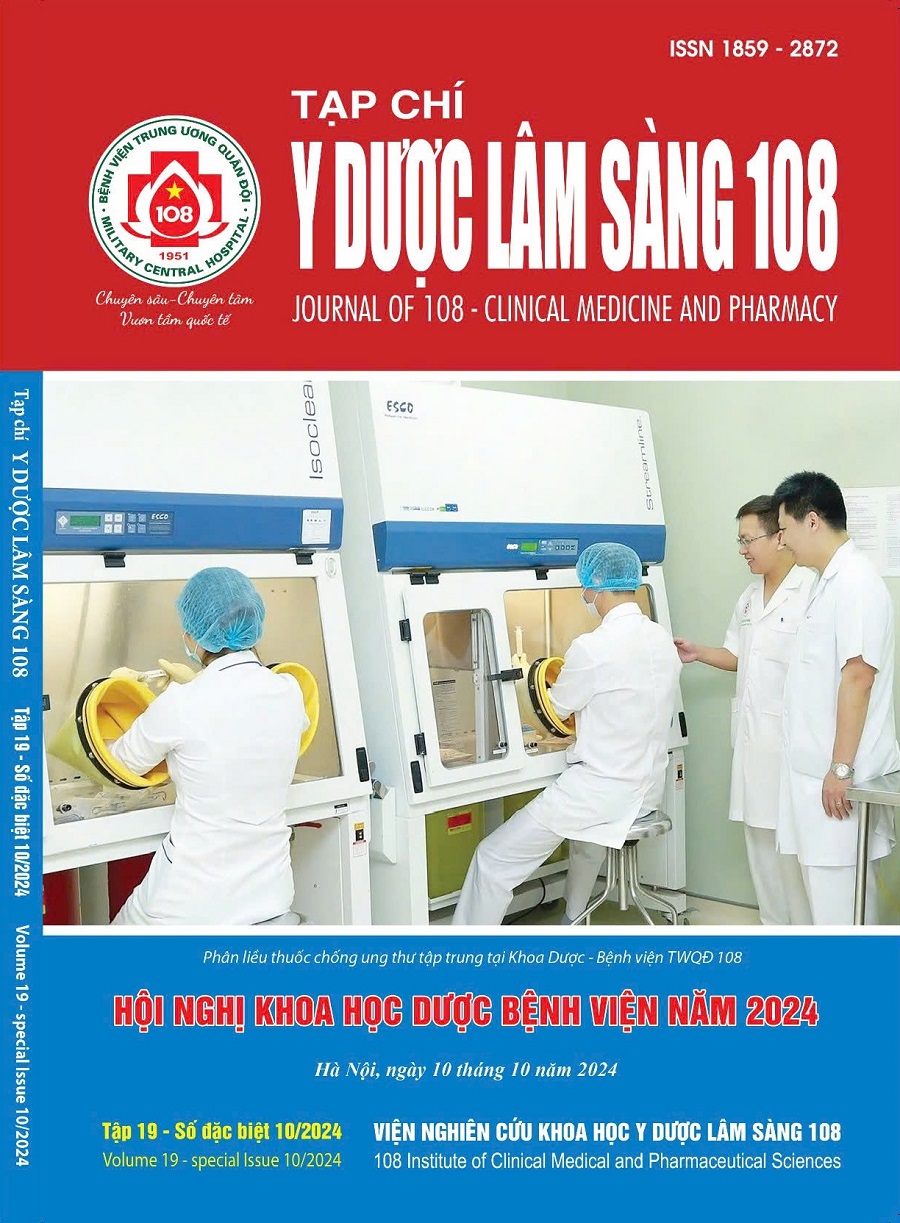Analyzing the situation of not accepting drug-drug interaction alert provided by clinical decision support system at Nga Son District General Hospital
Main Article Content
Keywords
Abstract
Objective: To analyze the situation of unaccepted drug-drug interaction (DDI) Alert of Clinical Decision Support System (CDSS) at Nga Son District General Hospital. Subject and method: A retrospective cross-sectional study was conducted on trace data of 1501 unaccepted DDIs alerts, and a questionnaire was used to survey 38 doctors' perceptions and satisfaction with the adverse DDIs alert system based on the CDSS. Result: Contraindicated drug interactions accounted for 3.1% of all unaccepted DDIs, of which 100% were conditional contraindicated DDIs. The proportion of patients with contraindicated conditions was 48.6%. There were 1455 adverse drug interactions, accounting for 96.9% of all unaccepted DDIs. Most doctors rated the CDSS function highly in terms of interface (4.21/5), information quality (4.09/5), technology quality (4.69/5), and positive impact on the prescribing process (4.45/5). However, doctors' opinions on unaccepted DDIs include patients have no contraindication conditions, there are no alternatives, no adverse effects on patients have been recorded, etc. Conclusion: Doctors have responded positively to the impact of DDIs alerts through CDSS, but it is necessary to reduce non-specific, overloaded alerts, integrate patient information, clinical situations, and clinical pharmacist consultations to improve doctor acceptance rates.
Article Details
References
2. Aksoy N, Ozturk N (2023) A meta-analysis assessing the prevalence of drug-drug interactions among hospitalized patients. Pharmacoepidemiology and drug safety 32(12): 1319-1330.
3. Moura SC, et al (2012) Evaluation of Drug-drug Interactions Screening Software Combined with Pharmacist Intervention. International Journal of Clinical Pharmacy 34(4): 547-552.
4. Ancker JS, Edwards A, Nosal S, et al (2017) Effects of workload, work complexity, and repeated alerts on alert fatigue in a clinical decision support system. BMC Med Inform Decis Mak 17(1): 36.
5. Muylle KM, Gentens K, et al (2021) Evaluation of an optimized context-aware clinical decision support system for drug-drug interaction screening. Int J Med Inform 148: 104393.
6. Chaudhry AP, Samudrala S, Lopez-Jimenez F, et al (2019) Provider Survey on Automated Clinical Decision Support System for Cardiovascular Risk Assessment. AMIA Jt Summits Transl Sci Proc 3(1): 23-29.
7. Shemeikka T, Bastholm-Rahmner P, Elinder CG, et al (2015) A Health Record Integrated Clinical Decision Support System to Support Prescriptions of Pharmaceutical Drugs in Patients with Reduced Renal Function: Design, Development and Proof of Concept. International Journal of Medical Informatics 84(6): 387-395.
8. Đỗ Ngọc Minh (2023) Khảo sát đặc điểm cảnh báo quá liều thông qua hệ thống hỗ trợ quyết định lâm sàng tại bệnh viện Hữu Nghị. Khóa luận tốt nghiệp Dược sĩ Đại học, Đại học Dược Hà Nội.
9. Kulkarni U, Ravindran S & Freeze R (2006) A knowledge management success model: Theoretical development and empirical validation. Journal of management information systems 23(3): 309-347.
10. Park J, Chae YM, Lee YT et al (2009) Evaluation of CDSS for Drug Prescriptions Based on Success Measures. Journal of Korean Society of Medical Informatics 15(3): 293-301.
11. Kim J, Chae YM, Kim S, Ho SH, Kim HH, Park CB (2012) A Study on User Satisfaction Regarding the Clinical Decision Support System (CDSS) for Medication. Healthcare Informatics Research 18(1): 35-43.
 ISSN: 1859 - 2872
ISSN: 1859 - 2872
